As you may have gathered from previous posts, the manuscript for my forthcoming novel Vaetra Unveiled is undergoing second draft rewrites and a simultaneous review by beta readers. I thought I’d share some of the things I’ve learned from the notes I’ve gotten back from my beta readers.
Lesson #1: Brace Yourself
I told my reviewers that I wanted them to be brutally honest in their comments about the book. This is my first novel, so if it was going to be an embarrassment, I needed to know that.
Well, I don’t think they have been particularly brutal, but they did take me at my word. They weren’t afraid to tell me what they thought when something didn’t work…
Don’t like this last sentence. Is he glad to leave? Is he looking forward to something?
That makes me think about conflict….let your characters fight.
Let those conflicts stay unresolved in some cases for a while…you
are asking and answering a lot of questions…maybe leave some of them
unanswered.You write, “As much as I cared for Dela” and I just yelled at the page “You do? How would I know that?” I needed to be shown this before or eliminate this statement or change it to what you really mean.
I started writing fiction with the understanding that I had no idea what I was doing. I’ve been writing articles and contributing to non-fiction books for years, but this was my first shot at a fantasy novel. Having that perspective has made it easy to see the criticism my beta readers have given me in the light it was intended; as constructive criticism that is helping me improve my story. And it definitely has helped!
The good news it that it isn’t all bad news. As I documented in a previous post, my beta readers have been generous with their praise as well as their criticism. I appreciate both.
If you decide to put yourself out there and share your novel with others for review in any form, brace yourself to receive their honest opinions.
What Have You Learned?
Please share the lessons you’ve learned from your beta readers, critique partners, and editors in the comments. Have you had to develop a thicker skin? Tell me about it!


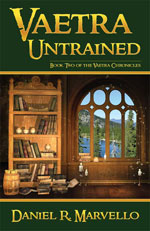

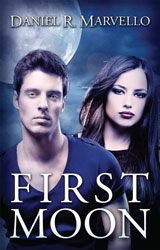
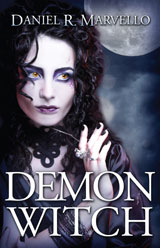
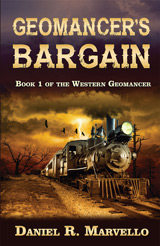
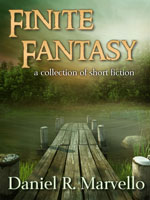
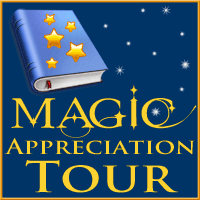

Contests really helped me to develop a thick skin. I received raw, sometimes hateful criticism from anonymous judges. Truly respected the ones who were brutal and still left their names :).
I’ve learned that whatever I think the problem with the story is, my betas will point out something I hadn’t thought of. Keeps you on your toes!
Ah, yes, brace yourself is a very good lesson! I have to say I’ve been very lucky in that I’ve never received any truly brutal/nasty comments about my writing. I would have to agree with L. Blankenship and say that my betas/crit partners will tend to point out problems that I hadn’t even thought of – which, of course, is why they’re so very valuable! I’ve also learned that you really can’t catch everything yourself, no matter how hard you try.
Your journey to getting your first fantasy book into shape is very interesting. I’ll probably be asking you some questions when my WIP gets closer to a readable state. I thought about volunteering to be one of your beta readers when you first announced it, but decided I probably wouldn’t be able to spend enough time to do your work justice.
By the way, glad to see you’re part of the campaign. Good luck.
Thanks for stopping by, Ken. Feel free to ask whatever questions you want. I’m willing to share what limited knowledge I do have.
The campaign has been a lot of fun so far. Very time consuming, but rewarding. Making contact with so many other authors is even more interesting and energizing than I imagined. We all have the same goal, regardless of our individual plans for getting there.
L. Blankenship and Crystal: Thanks for campaigning my way!
I agree that the real value of beta readers (or any form of external critique) is having the spotlight shown on those things you missed.
I think the reason for why you can’t catch everything yourself is because you already have too much information in your head about the story. Only a small percentage of the back story, character development, and world building actually goes directly into the novel. However, that body of work gives *you* such an amazing perspective on what’s going on in every scene that it becomes impossible to simulate the impressions of a first-time reader.
Isis wrote:
> I received raw, sometimes hateful criticism from
> anonymous judges.
Ouch! Hateful criticism would stick with me for days or weeks. Fortunately, beta readers are rarely anonymous, which makes them a little more considerate, I suspect.
Brutally honest with constructive criticism is fine. Brutally rude is uncool in any circumstance.
Hey there, me again! Just wanted to stop by and let you know I’ve given you an award. Come on over to my blog to claim it! 🙂
I just went through a critique session this weekend and it can be *hard* to hear some of it (even when I *know* it’s a problem that I have already). But I’d rather have my critters tear apart my baby than have an agent think I’m a no-talent hack!
Plus, the last person my book will go to before I start querying is my husband, and that terrifies me. It needs to be as good as possible before he gets it, because he will not be afraid to rip it to shreds! Tough love, baby.
Thanks for visiting Crystal. The award is a good idea. Now you have me curious!
Thanks for your comments Rebecca. It turns out that my wife, who has an English degree, was the least critical of my work. My beta readers have been far more demanding of me.
I know exactly what you mean about wanting the response of "critters" first. That’s the bitter-sweet part of getting critiques. On the one hand, it hurts. On the other, it beats being embarrassed later about things you could have fixed.
Not that you have to accept everything they tell you! Ultimately, you have to decide which advice fits with your vision for the novel and which does not.
Happy revising!
I don’t have beta readers. I have one editor that helps me when the time is right.
Mike: You are far braver than I am. Perhaps when I have more writing under my belt and a great relationship with an editor I trust, I might let a single individual be the arbiter of what is good or bad in my writing.
As it is today, I feel like I need multiple perspectives to help me identify what comes across well and what doesn’t.
Realistically, even later I’ll probably rely on beta readers because I don’t think the perspective of an editor can replace the perspective of a reader. Besides, I know from other writers that one editor gives you one opinion, and two editors give you two different (and sometimes contradictory) opinions!